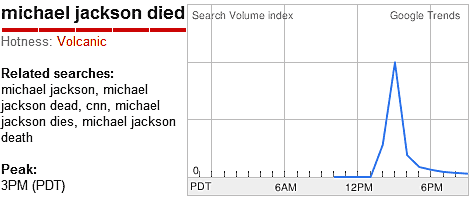Contextual advertising in impending hyperinflation
It isn't a revelation that we will face the deepening financial crisis just in the near future. How would it affect contextual advertising?
No matter how strong your will to avoid all these "depression talks" and let it fix itself, it is clear that this does not happen. One of the most probable scenarios for the next two years of global financial crisis is hyperinflation. The rapid depreciation of the money will have a significant impact on the segment of contextual advertising.
Let's imagine that AdWords will use post-paid invoicing. In this case, the money Google get is no longer appropriate to the cost of services previously provided. Given that payments to publishers are to be made even later, this could be more or less all right, however, advertisers will try to delay the payment of bills, and Google's internal costs will rise steadily. At some point, Google will require replenishment of the deposit for the use of AdWords service.
The described situation makes use of contextual advertising (eg, AdWords-AdSense) unprofitable for an advertiser and, moreover, for a publisher. Large sites have a potential to solve it easily - they can sell their banner space to advertisers directly. Small sites will be in real trouble - hyperinflation will eat up the revenue of contextual advertising aggressively. Google will not be happy about losing its advertisers and publishers, too.
What could be the solution?
Either Google will develop its own or cooperate with an existing web instant payment system (smth. like PayPal) that will enable publishers to withdraw their earnings when they are needed, or the popularity of the AdSense publisher may drop dramatically.
There's one born every minute, so, it is likely that while Google will slow the car to change direction, a new player in the contextual advertising market will come. If it will offer webmasters the opportunity to withdraw the funds earned or alternatively will pay out on a daily basis through PayPal - it potentially could grab out a substantial market share of contextual advertising.
The time will show.
Life that affects web, web that affects life
Just within one week after the Iranian social network wave named "Facebook revolution", when the web caused a dramatic impact and quick succession of events in real life, we observe an opposite influence. The death of a pop star Michael Jackson affected the web and caused a slowdown through of innumerous users' activity.
Google, as a world leading search provider, indicated a "volcano" growth of searches containing "Michael Jackson" with its peak just in 2 hours after the news become public. The fair quantity of looking similar searches even caused an anti-spam security system to block that kind of searches, being suspected of fraud or automatic searches.

Among Google top-10 trends of June 25, 2009, four relate to Michael Jackson:
michael jackson died
michael jackson dead 2009
christian eyenga
jeff goldblum dead
la times
jeff goldblum
michael jackson heart attack
cardiac arrest
what did danielle do to dina
farrah death
Google wasn't the only site, affected, - according to BBC "traffic to the site at the time of Jackson's death was 72% higher than normal". The burst of activity in social networks lead to Twitter servers crash after 66,500 post updates related to Michael Jackson just within first 2-3 hours.
Internet giants like MSN, Yahoo, AOL, famous news-provider sites found themselves under attack of an incredible number of users hunger for new facts, pressing their browser's "reload" button.